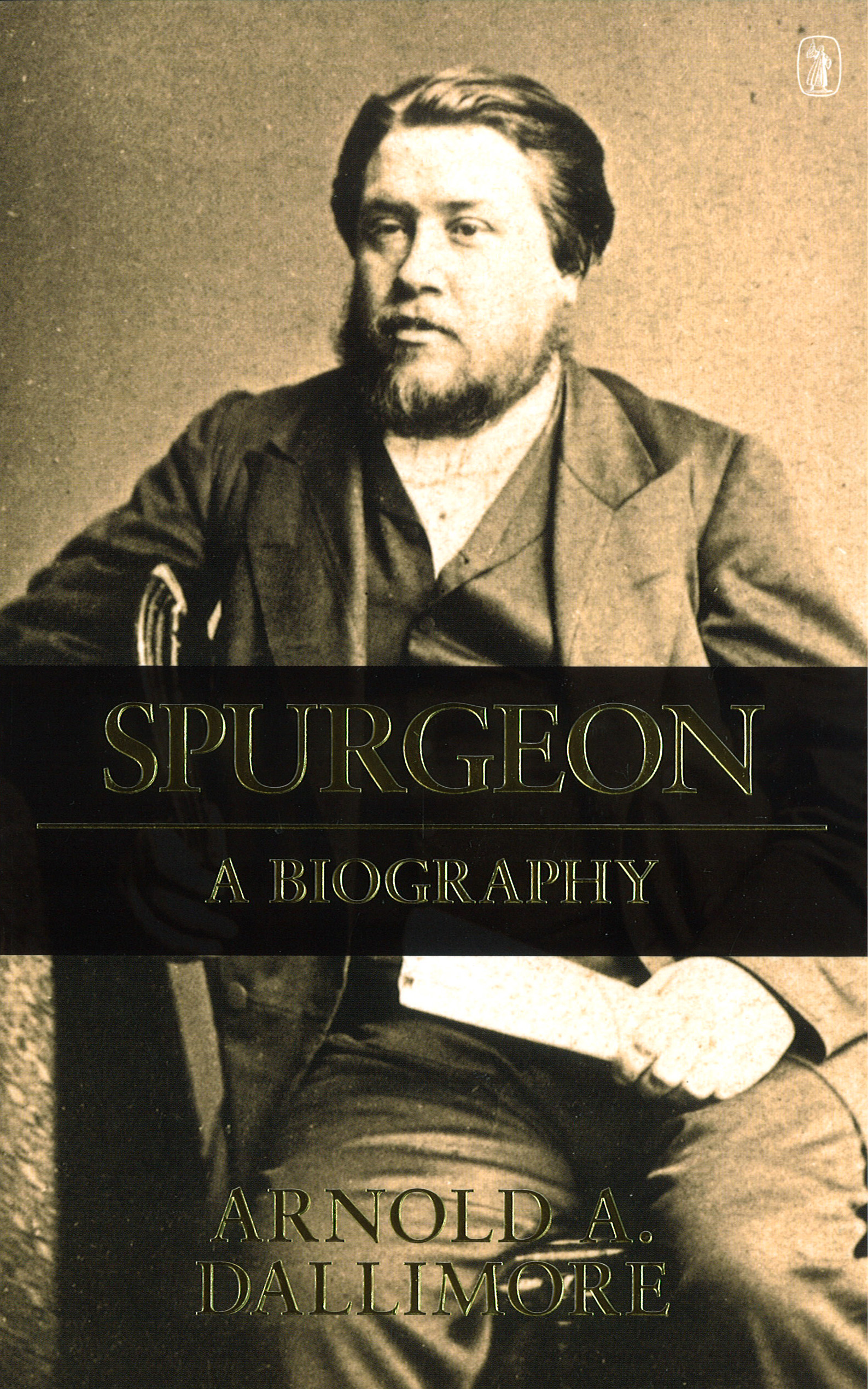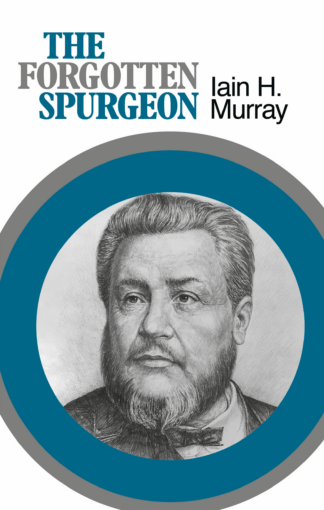Reading Spurgeon
Charles Haddon Spurgeon was born in Kelvedon, a village in the county of Essex in the east of England, on 19 June, 1834. He went to be with Christ from Mentone, France, on the evening of Sunday 31 January, 1892. During his lifetime he became perhaps the greatest preacher in the English-speaking world, of his own or any other century. We marvel not just at the precocious and maturing genius of the man, not just at the sustained numbers of hearers and converts, not just at the faithfulness in the face of much abuse and opposition, not just at the theological clarity amidst growing spiritual confusion, but at the heartfelt and humble holiness of a man who walked with God amidst it all. Spurgeon himself predicted that his reputation would suffer in the short term but that the truth of Christ which he proclaimed would outlast all those slurs: ‘I do not look so much at what is to happen to-day, for these things relate to eternity. For my part, I am quite willing to be eaten of dogs for the next fifty years; but the more distant future shall vindicate me.’
Spurgeon was the most ardent and articulate exponent and defender of reformed truth in the church of his day, standing firmly against the theological downgrade being experienced by many evangelical churches of his time. He was a preacher, pastor, author, philanthropist. . . he seemed to roll the work of ten lifetimes into one sustained burst of service to Christ! He probably ranks among the greatest Englishmen of all time, but he claimed that he would not have crossed the road to hear himself preach. We think and know better of him than he did of himself. His sermons and other productions continue to bring blessing to countless souls.
It was therefore with no little interest that I recently responded to the inquiry of a friend who asked how long it would take to read the complete sermons of Charles Haddon Spurgeon at a rate of one a day. ‘Which ones?’ I asked, for in addition to the six volumes of the New Park Street Pulpit (NPSP) and the fifty-seven volumes of the Metropolitan Tabernacle Pulpit (MTP) there are now others available, some dredged out of and collected from The Sword & The Trowel magazine, others a recovery of his earliest sermon manuscripts.
‘I’m thinking New Park Street Pulpit and Met Tab Pulpit,’ replied my textually-challenged chum.
The answer is that each of those sermons, originally issued as a Penny Pulpit series, is numbered. Beginning with volume one of NPSP, they finish in the combined volume sixty-two and sixty-three of MTP, published for 1916-17, when a paper shortage during the Great War finally put paid to the ongoing publication of Spurgeon’s primary work. There are 3,561 such sermons in total. If you assume consecutive reading, that means nine three hundred and sixty-five day years and two hundred and seventy-six days. If you assume two leap years rather than three, you will finish on day two hundred and seventy-four of the tenth year of reading. If you begin on 1 January, you should finish on 1 October in your tenth year of reading.
Thus provided with all the necessary information, my semi-literate friend responded thus: ‘U gonna join me?’
And so was born the scheme for reading Spurgeon. From 1 January 2021, a few intrepid friends will set out to read one of Spurgeon’s sermons each day, beginning with the first volume of NPSP, and continuing on. The first target is to complete the six NPSP volumes, after which we may plough on through MTP. Because this exchange was public, others expressed interest. Being magnanimous types, we decided to spread the joy. A Twitter feed followed, @ReadingSpurgeon, and others began to join in. For those for whom a sermon a day may be a stretch, we hope to recommend one a week. Our friends at Media Gratiae got involved, and now we may be doing a weekly podcast and some occasional ‘lively readings’ of select sermons—not acted-out preaching but an attempt to communicate something of the sermonic form and force of those sermons as originally delivered.
Anyone who is interested in either the full or the partial reading scheme is welcome to join us. Just head over to the Twitter feed and follow us for all the necessary information and links. However, there may be others who simply want a taster. With that in mind, here is a brief survey of the Spurgeon material available from The Banner of Truth.
An All-Round Ministry — More or less a mini-pastoral theology, this is a selection of addresses from the annual gathering of Spurgeon’s Pastors’ College. They set out both to instruct and to inflame, so that the work of the ministry is clearly laid out, and encouragements and exhortations for that work supplied. There is a sweet honesty to these addresses, and the closeness between Spurgeon and his students bleeds on to the page.
The Greatest Fight in the World: Spurgeon’s Final Manifesto — This is the final address Spurgeon delivered to those Pastors’ College men. It was delivered in 1891, when Spurgeon was battered and bruised from the Downgrade Controversy (he died 31 January 1892). It is his final call to arms to those who remained faithful, not so much to him, as to his Saviour. He calls the pastor-preacher’s attention to our armoury, the Scriptures, to our army, the church, and to our strength, the Holy Spirit. Reading this will stir your soul, even as it carries you beyond your own strength to rest in that which God supplies.
Flowers From a Puritan’s Garden: Illustrations and Meditations — This is one of those volumes which throws light upon Spurgeon’s distinctive genius. Reading through Manton’s twenty two volumes was not enough. Marking all his striking imagery did not do the job. No, Spurgeon culled them from those pages, arranged them for our delectation, and added some colour of his own! While each of Spurgeon’s deliberations serves as a meditation for us, they also help us to think about how we can turn an illustration into an application, and so adorn our own sermons.
Advice for Seekers — This volume reads like some pastoral chats between a concerned soul and a faithful man of God. Spurgeon did not mistake stirring interest in religion for real conversion, and so was concerned to clear the obstacles that might lie between the soul now alerted to its need and the Christ who meets that need. It is almost conversational in style, and so helpful both to those who still need such counsels and to those who wish to learn how to give them in person. It still serves as a good evangelistic tool, especially to those who already know something of Christianity without knowing Christ himself, and as a good pattern for dealing with souls.
Christ’s Glorious Achievements — One of the things that Spurgeon was good at was selecting and arranging sermons preached more or less separately to create a sort of topical arc. That is what he does here, and Banner have picked up this selection and repackaged it. It shows something of Spurgeon at his best. Of this theme, he said, ‘Upon no theme is the true minister so much at home, and yet no subject more completely surpasses his ability. We love the subject, though we are lost in it.’ If you are going to get lost in this subject, Spurgeon is a great man to get lost with! In seven sermons he takes you on a short tour of Christ’s work, leaving the reader lost in wonder, love and praise.
Majesty in Misery (3 volumes) — This excellent and more extensive selection of sermons again carries us to the heart of Spurgeon’s holy obsession with Christ and him crucified. Here the aim is to set before us the very core of our faith, the sufferings and death of our Saviour. The three volumes carry us chronologically from ‘Dark Gethsemane’ by way of the ‘The Judgment Hall’ to ‘Calvary’s Mournful Mountain.’ It is easy to hear Spurgeon’s heart and his voice breaking as he preaches from the page, and the dry-eyed preacher of the present day will learn a true spiritual pathos from Spurgeon’s deeply-felt presentation of our Lord’s physical and spiritual agonies.
C. H. Spurgeon Autobiography (2 volumes). This is the condensed version! Spurgeon’s own, completed by his wife and secretary, spans four volumes. I confess to quite liking the full version, but it’s very Victorian, and sometimes lacks a little urgency. This is the nuggety edition, keeping the action moving while still giving us plenty to get our teeth into. The Early Years carries us into the heart of his London ministry, while The Full Harvest depicts the blessings, burdens and battles of his mature years of service. A really wonderful set, up there with Banner’s Whitefield and Lloyd-Jones biographies, though bear in mind that this one has a very different flavour, being autobiographical.
Revival Year Sermons — 1859 was a spiritual jubilee even by Spurgeon’s standards. During this season, Spurgeon preached Christ in the Surrey Gardens Music Hall to a congregation of some 8,000 people. This little selection of sermons from that year of blessing communicates something of the fervour and the earnestness, the directness and the plainness, of Spurgeon’s gospel preaching. The preacher feels that if he could just attain to a tenth of Spurgeon’s spiritual liveliness, he will be a hundred times more than preacher that he now is. His congregation doubtless endorses his feeling! We can, at the very least, learn, and pray, and follow, where we can never copy.
Letters Of Charles Haddon Spurgeon — One of those indefatigable Victorian types, Spurgeon kept up a zesty correspondence, dashing off little notes here and there, as well as longer missives. Iain H. Murray’s selection lets us see Spurgeon the man. We note that there is no gap between Spurgeon at his writing desk and at his pulpit desk: he is manifestly the same person, but here are different glimpses of his humanity and personality, glittering through a variety of letters to a variety of people.
Spurgeon’s Practical Wisdom: Plain Advice for Plain People — There’s a peculiar relentlessness in these pages. It reminds the reader that Spurgeon could probably have been hard work for the less gifted. Writing under cover of the name John Ploughman, these are Spurgeon’s articles on practical topics for the common man—debt, temptation, drunkenness and the like. It is hard to imagine many today responding so warmly to the occasionally patrician tone, but Spurgeon does a good job of ‘talking across’ and not so much ‘talking down.’ This is less gospel exhortation and more moral instruction, and he lays it on thick. Some chapters feel like a couple of hundred sentences all making precisely the same point in a very subtly different way. Bearing in mind that these appeared as magazine articles, it helps to read them from time to time, as a repeated dose can become a bit overwhelming.
The Pastor in Prayer: A Collection of the Sunday Morning Prayers of Charles Spurgeon — This man of God prayed like a child. There is a simplicity of vocabulary and a directness of address here that puts even the sermons to shame. One gets the sense of what it means to speak to God on behalf of men. In a spirit of humble dependence, Spurgeon approaches our Father in heaven; in a spirit of expectant faith, he lays before a gracious God the needs of the hour; in a spirit of eager hope, he leaves the throne of grace equipped and energised for the labour at hand. Reading these, one wonders whether a Christian might not have gone to the Tabernacle to hear Spurgeon pray as much as to hear him preach.
Metropolitan Tabernacle (Volume 38: Sermons Preached and Revised in 1892) — Somewhere on a shelf I have a collection of battered yellow-jacketed volumes of the Metropolitan Tabernacle Pulpit series, of which this seems to be the last published survivor. First issued right at the end of Spurgeon’s life and ministry, this is the man of God at the coalface, to his last days making known the glorious gospel of our Lord and Saviour Jesus Christ. Compared with his earliest pulpit efforts, there are some clear differences in aspects of tone and approach, marking the very different circumstances, but not in real substance. Still it is Christ, preached from the whole of Scripture, which attracts and holds the heart of the preacher, and still it is Christ, in all his saving majesty, who is held out to all who will hear.
Lectures to My Students — While many editions of this work abound, this is a beauty! Fully reset, and with all the paraphernalia which Spurgeon put in the original, it rocks with humanity and humour. Here is Spurgeon putting the point on the pin, putting the edge on the blade forged during his students’ week in the college. Deliberately lively to aid the flagging spirits of those weary men on a Friday afternoon, this is still a tonic for the soul. We forgive readily every occasion on which Spurgeon forgets that the rest of us are not him, and wonder at the kind of men who such instruction must have produced. Spurgeon pulls no punches, dilutes no truth, softens no blows, and relieves no duties, but neither does he withhold any sympathies, reserve any encouragements, or dash any hopes. Still a wonderfully positive but enduringly realistic take on the work of the ministry, it covers some topics that others barely touch. It perhaps focuses more on the pulpit than the parlour (as Spurgeon might have said)—more on the preaching ministry than the personal pastoral dimension. This edition includes Spurgeon’s bewilderingly brilliant ‘Commenting and Commentaries’; when you read Spurgeon’s commendation of a particular volume, this is often where it comes from.
Commentary on Matthew: The Gospel of the Kingdom — Let me recast a previous brief review: this is the only complete commentary on a book Spurgeon wrote (excepting his treatment of the Psalms, which was in some senses more of a compendium of others’ comments). It is magnificently Spurgeonic: from its opening paragraph, Spurgeon points us to Christ and never once loses sight of him in all the pages that follow. With laudable brevity, wry wit, proverbial pithiness, earnest devotion, vigorous plainness and gripping earthiness, Spurgeon paints his portrait of the King of kings, bringing the beauties of the Lord Christ into sharp relief and sweet expression. Other commentaries may provide an anatomically correct model of this Gospel, but Spurgeon gives you its beating heart.
A Defence of Calvinism — A little booklet in which Spurgeon extols the free grace of God in the salvation of lost sinners. Again, his direct mode of address grips us, as Spurgeon speaks directly off the page to his reader. This is less aggressive than you might imagine, but there are no concessions with regard to truth even while he embraces brothers who differ from him on the points he raises. On the one hand, one might feel that Spurgeon was perpetually in Calvinism’s so-called ‘cage stage.’ On the other, he is so forthright, so amenable, so open, that he comes across well even at his most in-your-face. This is a good, personal, warm, and engaging treatment of several of the issues that are often raised as one begins to understand that gospel of free grace which often goes by the nickname of Calvinism.
More on Spurgeon

Spurgeon
A Biography
Description
Charles Haddon Spurgeon was born in Kelvedon, a village in the county of Essex in the east of England, on 19 June, 1834. He went to be with Christ from Mentone, France, on the evening of Sunday 31 January, 1892. During his lifetime he became perhaps the greatest preacher in the English-speaking world, of his […]

Description
Charles Haddon Spurgeon was born in Kelvedon, a village in the county of Essex in the east of England, on 19 June, 1834. He went to be with Christ from Mentone, France, on the evening of Sunday 31 January, 1892. During his lifetime he became perhaps the greatest preacher in the English-speaking world, of his […]

Smooth Stones taken from Ancient Brooks
Selections from the writings of Thomas Brooks by C.H. Spurgeon
Description
Charles Haddon Spurgeon was born in Kelvedon, a village in the county of Essex in the east of England, on 19 June, 1834. He went to be with Christ from Mentone, France, on the evening of Sunday 31 January, 1892. During his lifetime he became perhaps the greatest preacher in the English-speaking world, of his […]
Latest Articles
Finished!: A Message for Easter 28 March 2024
Think about someone being selected and sent to do an especially difficult job. Some major crisis has arisen, or some massive problem needs to be tackled, and it requires the knowledge, the experience, the skill-set, the leadership that they so remarkably possess. It was like that with Jesus. Entrusted to him by God the Father […]
Every Christian a Publisher! 27 February 2024
The following article appeared in Issue 291 of the Banner Magazine, dated December 1987. ‘The Lord gave the word; great was the company of those that published it’ (Psalm 68.11) THE NEED FOR TRUTH I would like to speak to you today about the importance of the use of literature in the church, for evangelism, […]
